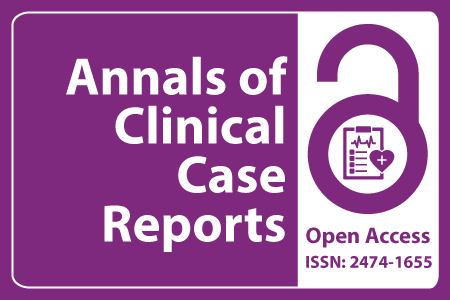
Journal Basic Info
- Impact Factor: 1.809**
- H-Index: 6
- ISSN: 2474-1655
- DOI: 10.25107/2474-1655
Major Scope
- Sports Medicine
- Renal Disease
- Sexual Health
- Neurology
- Biochemistry and Biostatistics
- Nursing
- Endoscopy
- Child Birth
Abstract
Citation: Ann Clin Case Rep. 2023;8(1):2381.DOI: 10.25107/2474-1655.2381
Tachycardia-Induced Cardiomyopathy Mimicking End- Stage Heart Failure: A Case Report
Orlov OS1*, Asfour A2, Bogdanova AA3, Gromyko GA4, Pershina ES3, Nesterov AP3, Ivonina NS3, Shchekochikhin DY3 and Andreev DA5
1Department of Cardiology, Sechenov First Moscow State Medical University, Russia
2I.M. Sechenov First Moscow State Medical University (Sechenov University), Russia
3Department of Functional Diagnostics, N.I. Pirogov City Clinical Hospital №1; I.M. Sechenov First Moscow State Medical University (Sechenov University), Russia
4Department of Cardiovascular Surgery, I.M. Sechenov First Moscow State Medical University (Sechenov University), Russia
5Department of Cardiology, The Institution of Clinical Medicine, I.M. Sechenov First Moscow State Medical University, Russia
*Correspondance to: Oleg Orlov
PDF Full Text Case Report | Open Access
Abstract:
Background: Tachycardia-induced cardiomyopathy is a potentially reversible subtype of dilated cardiomyopathy which can arise in ventricular and supraventricular tachyarrhythmia settings. Case Report: A 48-year-old male with a history of hypertension and paroxysmal atrial fibrillation with a recently diagnosed dilated cardiomyopathy of unknown origin with an ejection fraction of 13% presented feeling unwell with palpitations and congestion symptoms two months after initiating heart failure and antiarrhythmic therapy. A full differential cardiac workup, which included electrocardiography, cardiac enzymes, coronary angiography, cardiac echocardiography, and cardiac magnetic resonance imaging was performed. Other than a persistently low ejection fraction of 13% on echocardiography and atrial fibrillation on electrocardiography, all requested tests were inconclusive for any specific etiology. The patient was cardioverted into sinus rhythm and reported rapid symptomatic relief followed by a substantial increase in his ejection fraction the following day (13% to 53%). Tachycardia-induced cardiomyopathy was subsequently diagnosed retrospectively based on a recorded ejection fraction normalization following sinus rhythm restoration, presence of longstanding paroxysmal atrial fibrillation and only after excluding ischemic heart disease and other possible causes. Following a recurrence of atrial fibrillation and a decrease in ejection fraction to 45% two years later while on amiodarone and beta blockers, the patient underwent radiofrequency ablation with no further reported symptoms and atrial arrythmia recurrences. Conclusion: Tachycardia-induced cardiomyopathy should be suspected in patients with chronic tachyarrhythmias and unexplained left ventricular systolic dysfunction. If not counter indicated, catheter ablation must be prioritized as a safe and effective method to treat patients with atrial fibrillation-mediated tachycardia-induced cardiomyopathy.
Keywords:
Cite the Article:
Orlov OS, Asfour A, Bogdanova AA, Gromyko GA, Pershina ES, Nesterov AP, et al. Tachycardia-Induced Cardiomyopathy Mimicking End-Stage Heart Failure: A Case Report. Ann Clin Case Rep. 2023; 8: 2381.













